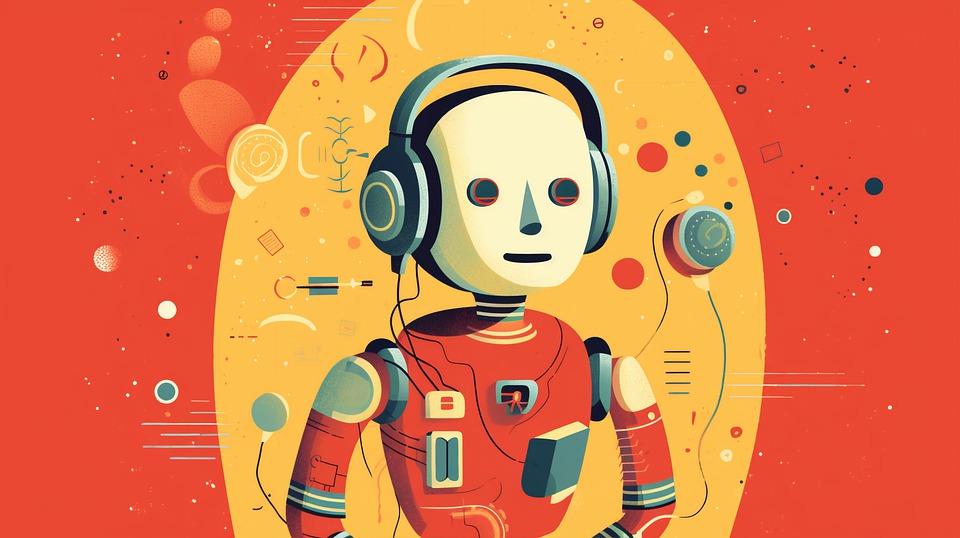"In the realm of education, Artificial Intelligence has made great strides in recent years, and ChatGPT stands as a prime example of its impact."

In recent years, there have been big advancements in Artificial Intelligence (AI) that have had a big impact on many parts of our lives, including education. One example of AI in education is ChatGPT, which is a powerful tool that can change the way we learn and teach. It’s an AI system that can have text-based conversations and act like a virtual tutor or learning partner. These developments have sparked renewed interest in how AI might shape the future of learning and what it could mean for students and teachers alike.
The astonishing potential of AI has been the subject of much discussion ever since Alan Turing proposed a test for machine intelligence in the 1950s. According to UNICEF’s forecast, AI in education was expected to be worth $6 billion by 2027. However, a recent study suggests that it may even reach $20 billion. This prediction is especially relevant today because ChatGPT is now widely used in conversations. Hence, given the remarkable growth of AI, this article will go into more detail on how AI is affecting the education industry.
ChatGPT and AI Influence on Education

ChatGPT is an AI system that uses advanced technology to communicate with users using text. Students can get individualised assistance, have their burning questions answered, and discuss various topics. The algorithm has access to a vast knowledge base and can produce responses that exactly mimic human speech. Consequently, this makes learning more effective as ChatGPT can provide immediate feedback, explanations, and extra resources to assist students in their understanding.
There are additional AI applications that affect education in addition to ChatGPT. These consist of intelligent tutoring systems, automated grading, adaptive learning platforms, and personalised learning algorithms.
a. Benefits of ChatGPT and AI in Education:
- Personalised Learning: AI systems, such as ChatGPT, have the ability to customise educational content according to each student’s unique needs and preferences. This personalised approach to learning enhances engagement and understanding, leading to better outcomes.
- Accessibility 24/7: AI-powered tools are accessible at all times from any location. This flexibility enables students to learn at their own pace and convenience.
- Immediate Feedback: Instant feedback is given on assignments, tests, and exams by AI systems. With such immediate feedback, students can identify areas for growth right away and make the required adjustments, which improves learning and development.
b. Disadvantages and Challenges:
- Lack of Human Interaction: While ChatGPT and other AI systems are helpful, they cannot take the place of human interaction. Social and emotional growth depends heavily on human connection, thus it’s critical to strike a balance between using AI-powered technologies and including human involvement in the educational process.
- Data Privacy and Security: Large amounts of student data are gathered and analysed in order to employ AI in education. Furthermore, to safeguard sensitive student data from illegal access or exploitation, it is crucial to ensure suitable data privacy and security safeguards.
ChatGPT and AI Influence on the Future

In the upcoming years, it is anticipated that ChatGPT and AI will have a positive impact on education. We may anticipate the creation of more complex AI-powered tools with a greater grasp of each student’s needs as AI technology develops. In addition, these resources will help teachers create individualised learning plans for students, spot potential problem areas, and apply targeted interventions to successfully support their academic progress.
Additionally, by increasing access to high-quality education in impoverished places, AI has the potential to help reduce educational inequities. Also, this can improve educational outcomes globally and help close the achievement gap.
The use of AI in education must be approached carefully and in accordance with moral principles. To effectively benefit from AI in education, it is essential to strike a balance between the use of AI and human engagement, address issues of bias and equity, and ensure transparent and accountable AI systems.
ChatGPT and AI have the power to transform education by delivering individualised learning opportunities, quick feedback, and increased accessibility to learning. While using AI in education has many benefits, it’s important to remain conscious of its drawbacks and potential pitfalls. Further, by leveraging AI responsibly and in conjunction with human involvement, we can create an educational landscape that maximises the benefits of both.
If you would like to learn more about topics like this, check out the Curio Journal for insights, news and fresh opinions about the world today: https://curio.sg/journal/

Leave a Reply